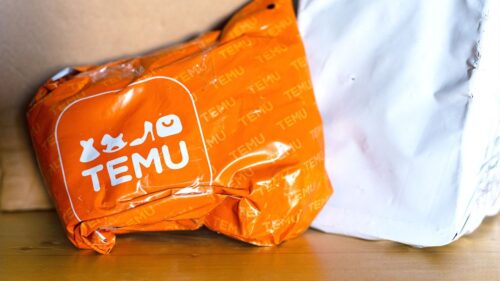
The Nigerian e-commerce sector is witnessing a major shake-up as Chinese retail giant Temu aggressively expands its footprint in the country’s $13 billion online shopping market. Since its launch in November 2024, the platform has rapidly gained interest by offering ultra-low prices, promotional giveaways, and promises of faster delivery. While its rapid growth has drawn attention, established local players Jumia and Jiji remain unfazed.
Temu’s approach mirrors its strategy in other markets—disrupting competitors through rock-bottom pricing and leveraging a direct-from-manufacturer supply chain. However, Jumia, Africa’s largest e-commerce platform, sees the new entrant as a positive force for the industry rather than a direct threat.
“We don’t view Temu’s arrival as a negative development; rather, it adds momentum to the industry’s growth,” said Robert Awodu, Regional Head of Public Relations & Communication for Jumia’s Sub-Saharan Africa operations. “Our focus remains on expanding into secondary cities and rural areas.”
Awodu emphasized Jumia’s deep market knowledge and regional presence across nine African countries as a competitive edge over foreign entrants. “When the freebies stop, consumers will prioritize the platform that offers the best long-term value, even if that means shopping offline,” he noted.
Similarly, Anton Volianskyi, CEO of Jiji, dismissed Temu as a direct competitor, stating that its product offerings do not significantly overlap with Jiji’s core categories, which include vehicles, real estate, and services.
 “Our business model differs fundamentally from Temu’s,” Volianskyi explained. “We represent local sellers, offering consumers a wide range of products and services that are immediately available, often with same-day delivery.”
“Our business model differs fundamentally from Temu’s,” Volianskyi explained. “We represent local sellers, offering consumers a wide range of products and services that are immediately available, often with same-day delivery.”
Despite reassurances from local players, industry experts suggest that Temu’s rise could bring major disruption. The platform has skyrocketed in popularity, becoming Nigeria’s most downloaded app on Google Play, surpassing major platforms such as WhatsApp, Opay, and ChatGPT, according to data from SimilarWeb. A report from Euromonitor International revealed that Temu has surged into the global top 20 e-commerce brands, climbing from outside the top 100 in 2023.
Temu attributes its rapid growth to a direct-to-consumer model that eliminates intermediaries, allowing for consistently low prices.
“We work with trusted logistics partners to ensure timely and reliable delivery for our customers,” the company stated.
Beyond competitive pricing, Temu is leveraging sophisticated consumer trend analysis to refine its product offerings. Its gamified shopping experience—featuring interactive promotions, countdown timers, and reward-based incentives—has proven particularly effective in attracting price-sensitive Nigerian consumers.
Temu’s expansion reflects a larger trend of Chinese companies reshaping Africa’s digital economy. The platform’s rise follows Beijing’s push to support emerging technology firms, including a recently announced $138 billion state-backed fund for advancements in AI, quantum computing, and e-commerce.
“If Temu establishes local operations in Nigeria, it could pose a serious challenge to Jumia and other homegrown platforms,” warned Oluwatobi Akapo, a former Business Development Manager at Jumia Nigeria.
However, while Temu’s aggressive pricing strategy has fueled its growth, the company faces challenges beyond market competition. Nigeria’s e-commerce sector is projected to double to $26 billion by 2030, driven by increasing smartphone penetration and expanding internet access, according to Worldpay. Yet, trust, logistics infrastructure, and consumer habits remain critical factors that could shape the future of the industry.
“Temu’s biggest challenge isn’t just Jumia,” said Uchenna Uzo, a professor of marketing at Lagos Business School. “Nigerian consumers prioritize affordability but also value trust, reliability, and quick delivery. The ability to address these concerns will determine long-term success.”
While it remains to be seen whether Jumia and Jiji can leverage their local expertise to counter Temu’s aggressive expansion, one thing is clear: the landscape of Nigerian e-commerce is undergoing a transformation.



